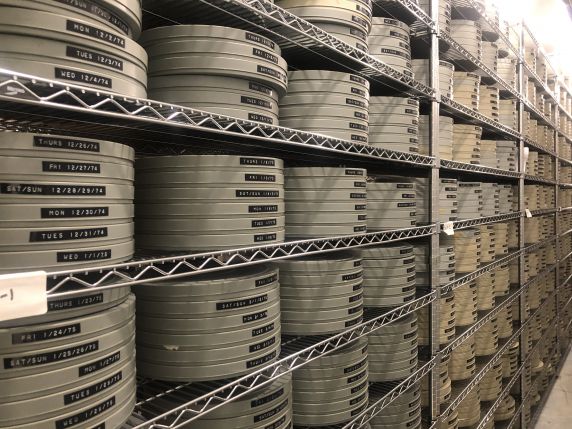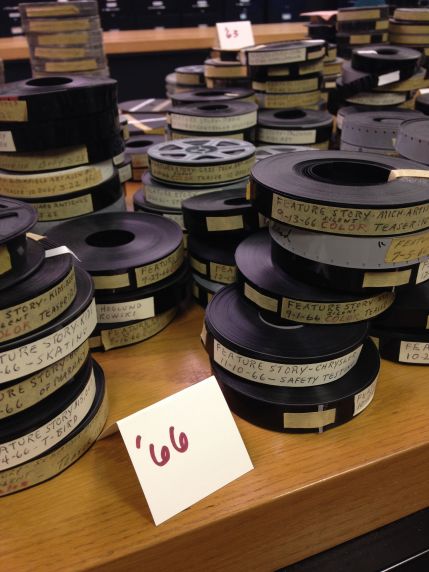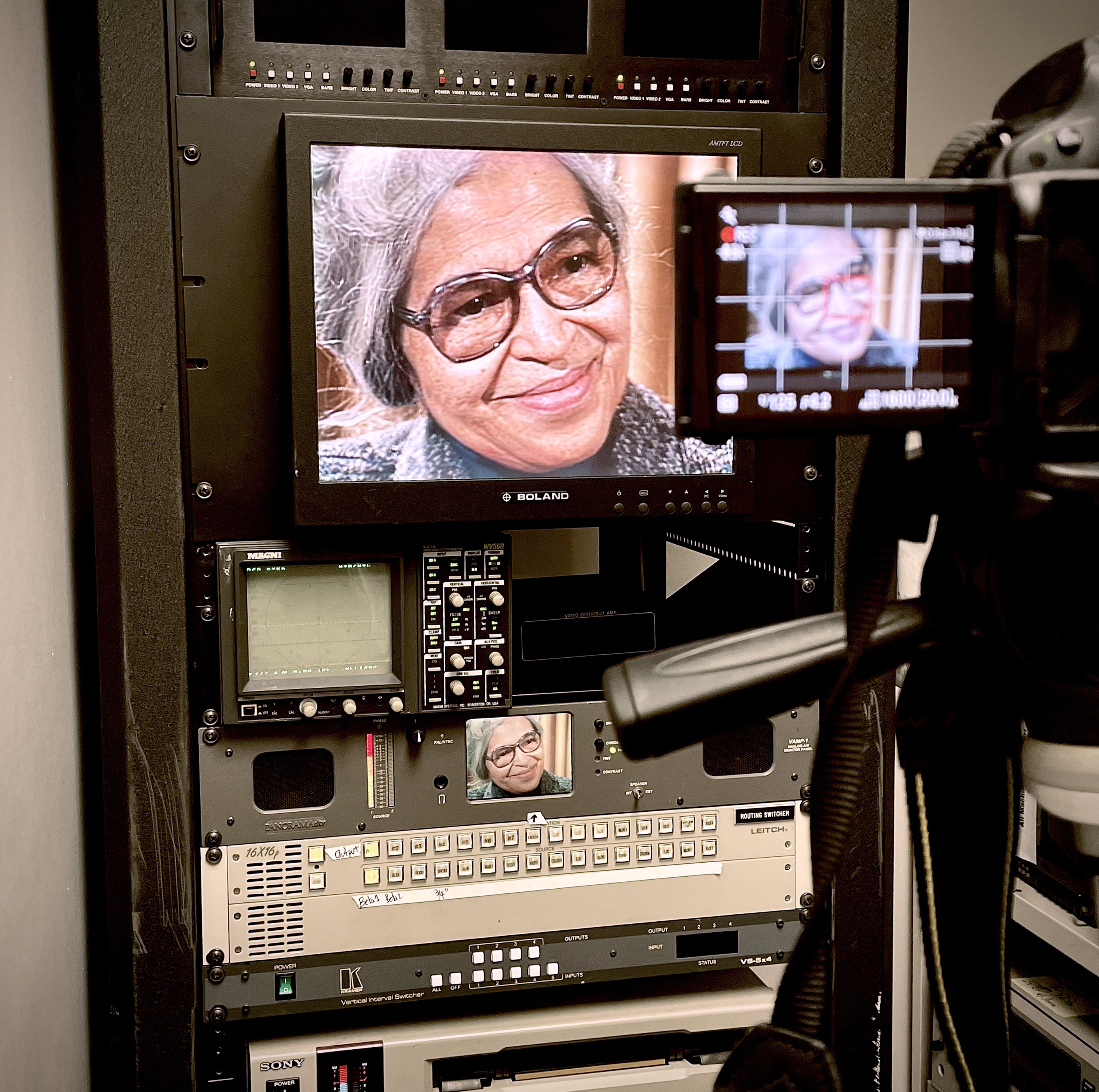WWJ / WDIV Film, Video, and Teleprompter Script Collection Now Open
The Reuther library is proud to announce the opening of the WWJ / WDIV Film, Video, and Teleprompter Script collection. The collection spans close to 100 years and is the largest archival collection of news-related moving images in metropolitan Detroit. It consists of nine groups of records with the first series consisting of the oldest 1920s-era 16mm film newsreels. The subsequent film and teleprompter scripts series go from the 1940s to 1978. The last two series are videotapes that cover the last two decades of the twentieth century and the first decade of the twenty-first, ending in 2011.
WDIV began as WWDT in March of 1947 as the first television station in Michigan and the sixth in the United States. It was owed by the Evening News Association which also owned the Detroit News newspaper and Detroit’s WWJ Radio. WWJ Radio was originally part of the National Broadcasting Company’s NBC Radio Network and is the reason why the current television station is still an NBC affiliate. In May of 1947, to match the radio station’s call letters, WWDT changed its call letters to WWJ. Less than a month later, the station’s first newscast was televised, and WWJ-TV began with daily programming of just six and half hours a day, Tuesday through Sunday. Tiger baseball, Lion Football, Red Wing Hockey, college football, and the Detroit Thanksgiving Day Parade were some of the events of local interest that were broadcast on WWJ-TV that first year. A new studio was added onto the radio building on Lafayette Boulevard in Detroit in 1952 and the station started broadcasting its newscasts and other local programming in color in 1960. In May of 1978, Post-Newsweek Stations, Inc. (renamed Graham Media Group) took over, changing the station’s call letters to the current WDIV. WDIV Local 4 is one of three local news stations in the metropolitan Detroit area and the only station with offices and studios within Detroit city limits. Along with its daily newscasts, Live in the D midday show, and weekly public affairs program, Flashpoint, WDIV accentuates its comprehensive local programming with annual coverage of Detroit’s Thanksgiving Day Parade and the Freedom Festival Fireworks.
While the arrangement and description of the collection was just completed, the material has been at the Reuther Library for many years. The first group of films came in 1972, with more material arriving in 1983, 2013, and 2018. Researching within the collection was more difficult before it was arranged and described, but that did not stop Reuther’s researchers from using it. In 2010, writer, director, producer Malik Bendjelloul looked at some WDIV B-roll of 1970s Detroit and ended up using a street scene of Woodward in his 2012 Academy Award-winning documentary, Searching for Sugarman. In 2011, The Oprah Winfrey Show featured the WDIV footage of the Detroit House of Corrections in a show about the suburban Mom, Susan Lefevre, who was a fugitive for 32 years. In more recent years, the daily newscast films and Flashpoint tapes were featured heavily in season 2 of the Gimlet Media Podcast Crimetown. The archivists at the Reuther hope that now that the WWJ / WDIV Film, Video, and Teleprompter Script collection is arranged and described, more people will take notice of the collection’s treasure-trove of moving images of Detroit history.
Currently, researcher access to the films and tapes is restricted because of COVID social distancing rules. However, through a generous gift from Zero Point Zero Productions and WDIV, some older magnetic videotapes were digitized and are viewable, either in-person or remotely. The Teleprompter Scripts are not available remotely but can be reviewed in the Reuther Library’s reading room. You can schedule an appointment or simply walk in to do research. If you are interested in other content on the films or tapes, the AV archivists can help by reviewing the films for you if time allows.
Mary Wallace is an Audiovisual Archivist the Walter P. Reuther Library.




 Reddit
Reddit Facebook
Facebook LinkedIn
LinkedIn